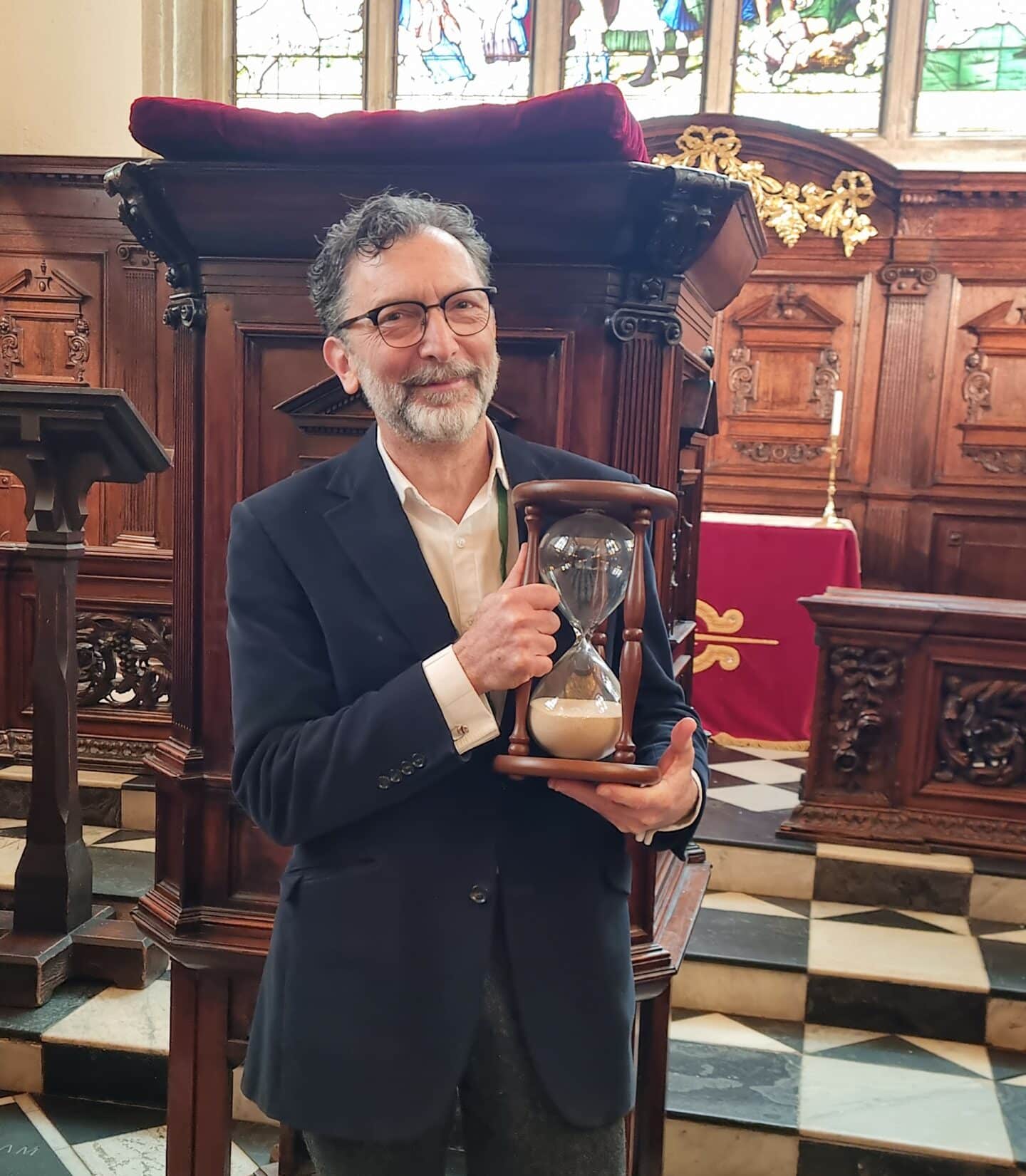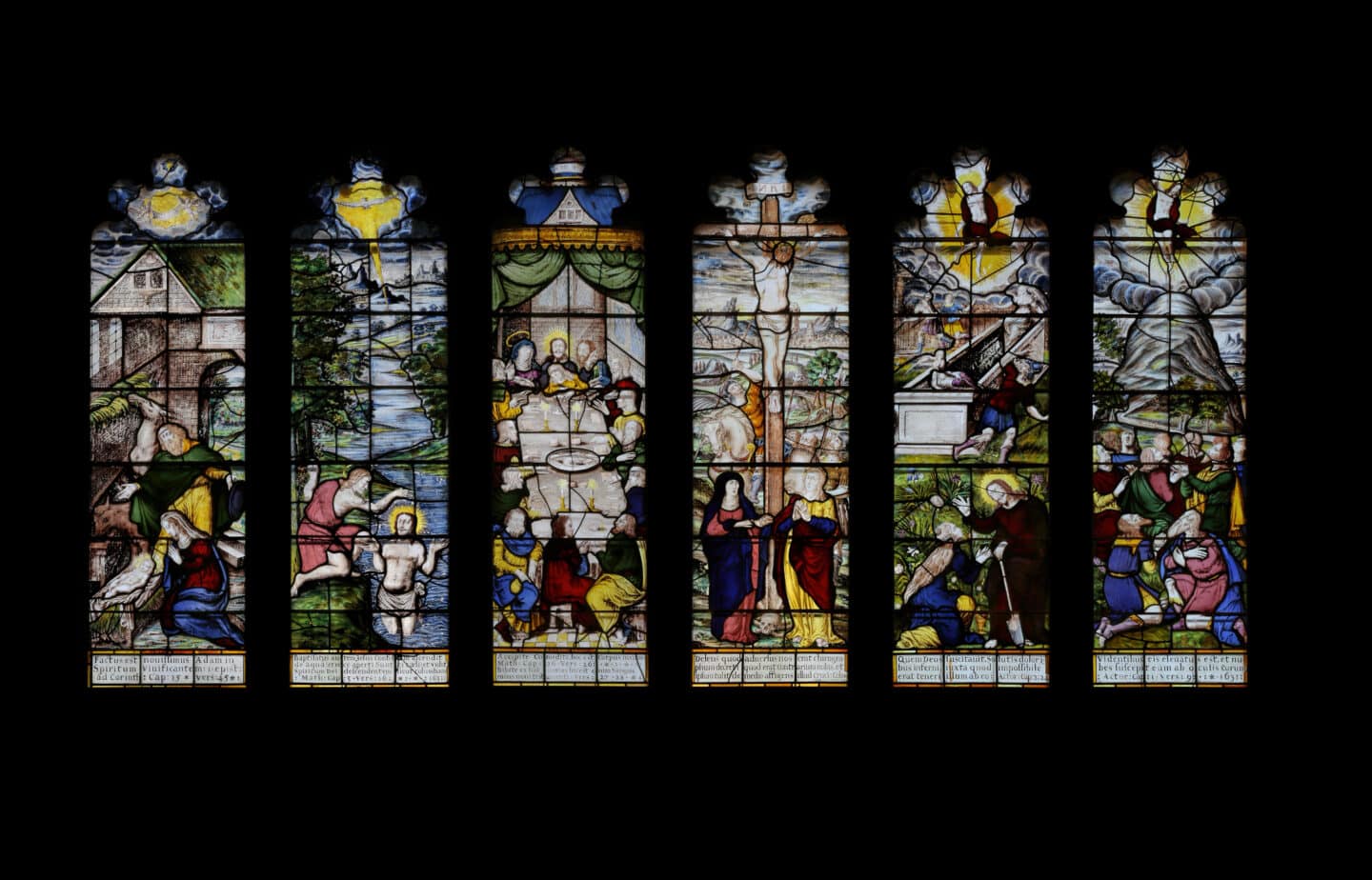Blog Post
Peter McCullough's John Donne Sermon
Professor Peter McCullough delivered a John Donne sermon in Lincoln Chapel, as part of the Oxford Literary Festival in March.
Most of us know John Donne as author of some of the most dazzling and erotic poetry in the language, but – as Peter McCullough reminded us – his contemporaries would have known him, almost exclusively, as one of the most celebrated preachers of his day. And indeed, the phrase most often associated with him now – ‘No man is an island’ – comes not from poetry but from his religious writings.
John Donne is very much in the spotlight once again, after the success of Katherine Rundell’s superb biography, Super-Infinite, and this event was a rare opportunity to see a John Donne sermon performed (definitely the apposite word) in a space exactly contemporaneous with Donne, and laid out in precisely the same way as the Chapel Royal where many of his sermons would first have been delivered. Lincoln Chapel was consecrated in the year Donne died, 1631, and has recently been beautifully and lavishly restored. The windows were the work of Bernard and Abraham van Linge, and include the famous East window, where the images are to be ‘read’ left to right, like a book, with scenes from the Old Testament ranged below the New Testament events they were thought to prophesy (including every Lincolnite’s favourite, Jonah and the whale).

As Peter explained, at the Chapel Royal, men would sit on one side and women the other, with the nobility seated by rank, the common people standing in the centre, and the king up above in the ‘royal closet’, only one remove from God. The stage thus set, enter the preacher, many of whom had rock-star status at the time, especially virtuosos like Donne, who was said to have preached to up to six thousand at St Paul’s. But it was no easy job: preachers were allowed only one hour (‘one turn of the hour-glass’) and had to recite their whole sermon from memory. Peter has a rather magnificent hourglass of his own, the gift of some of his old students, so the clock was, if not ticking, then definitely trickling. No pressure, then!
Peter’s been delivering sermons by Donne and Lancelot Andrewes in chapel for some years, but usually only for his own students. This year, however, the date planned coincided with the Oxford Literary Festival, and the sermon was included as part of the festival fringe. And it was a very popular choice, with the pews full on the day.
The sermon Peter chose was from the first Friday of Lent 1631. Donne had just recovered from a serious illness at that time, and his mother had just died, so it is no surprise that the theme of this particular sermon was ‘the issues of death’. Donne was not to know that he himself would die barely four weeks later.
The language was powerful, muscular, and deliberately emotive, and Peter did every justice to it, not faltering once, and allowing us to really appreciate the rhythm of the prose: as he said at the beginning, these texts are meant to be heard, not read. And yes – the last grains of sand were just dropping through as we came to Amen.
It was a real pleasure for those of us who’d seen Peter perform before, and definitely an eye-opener for those who came to this for the first time.

